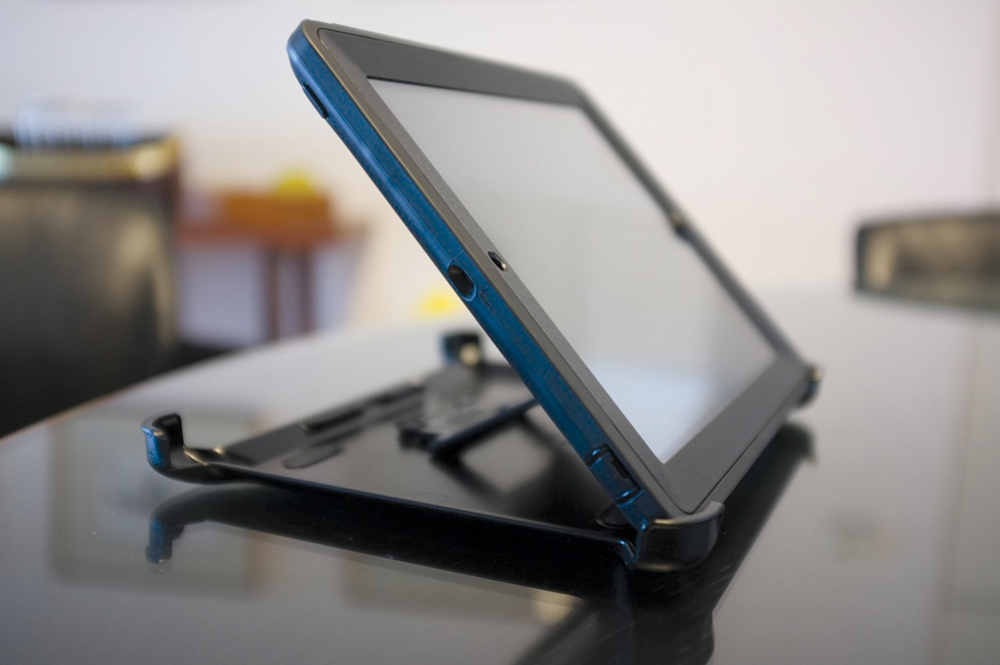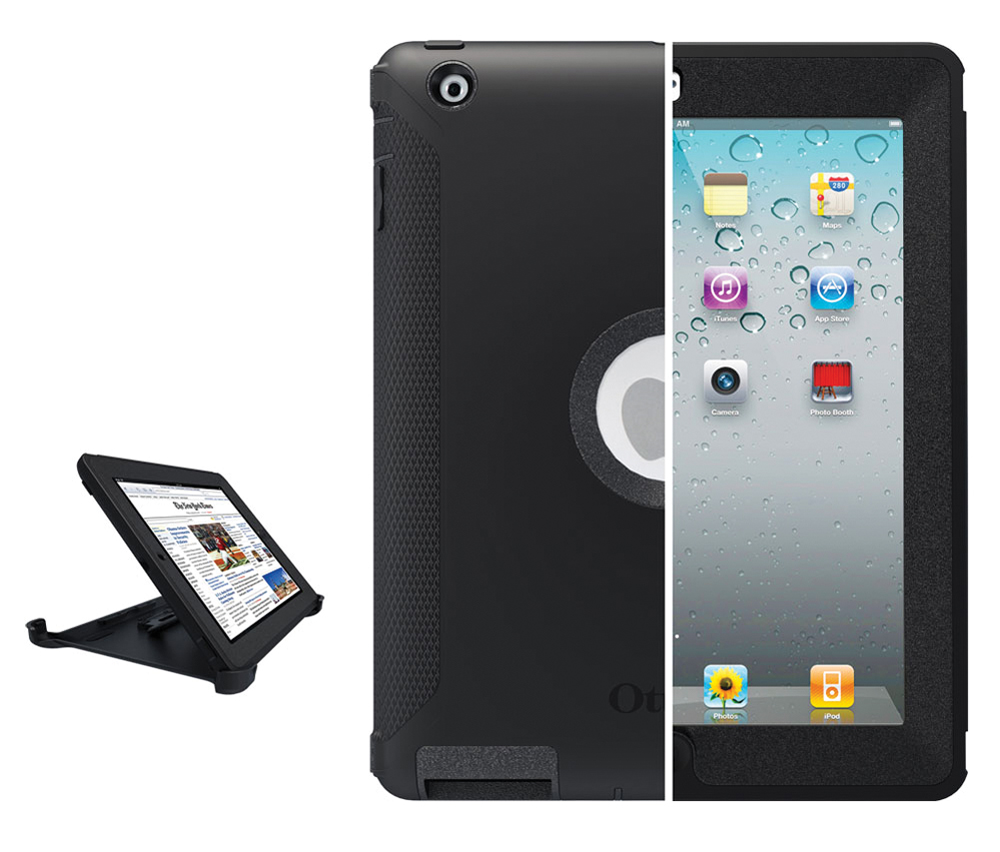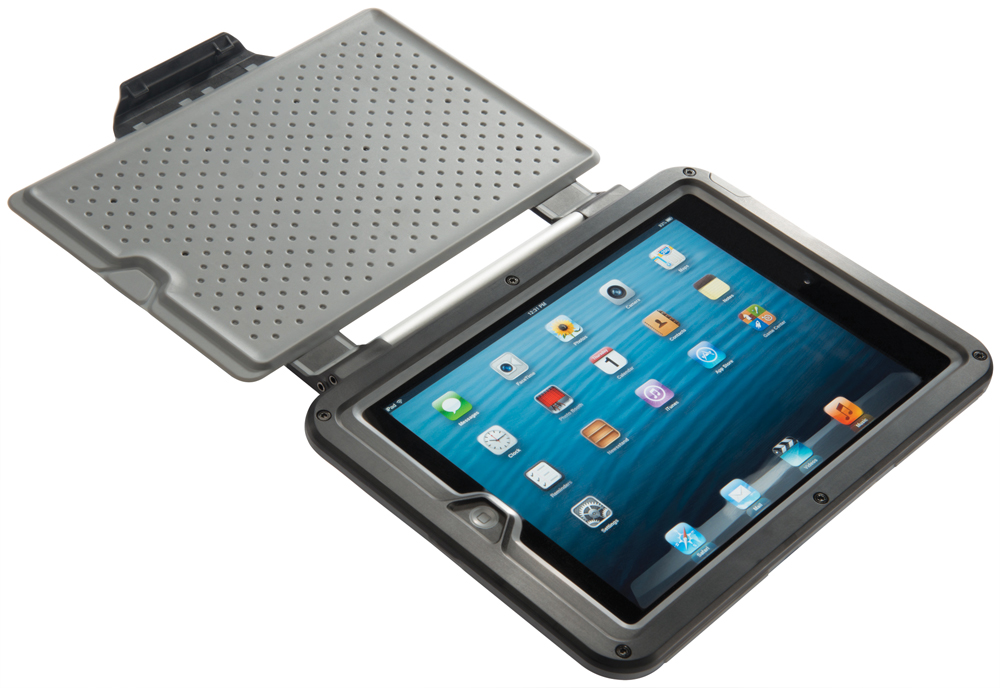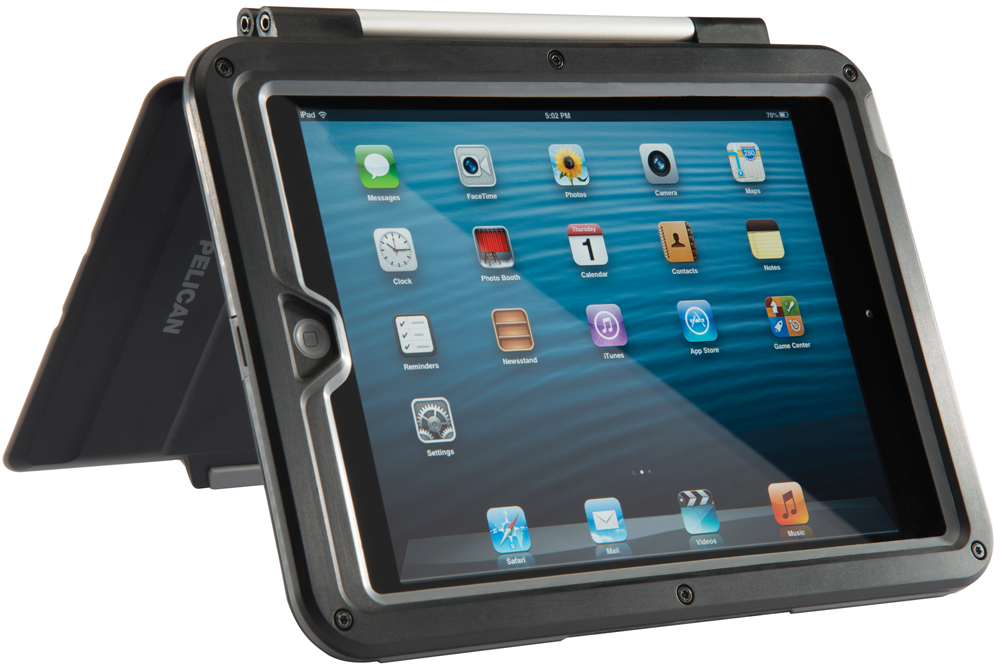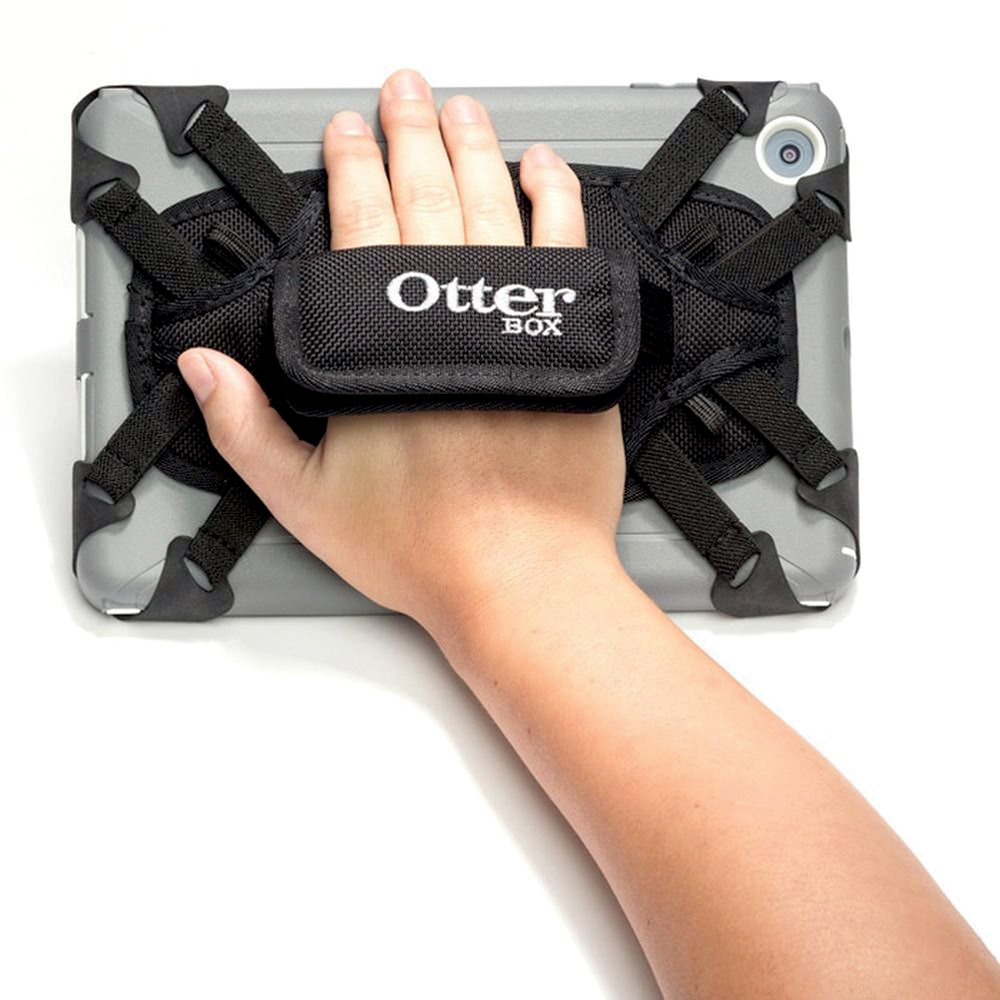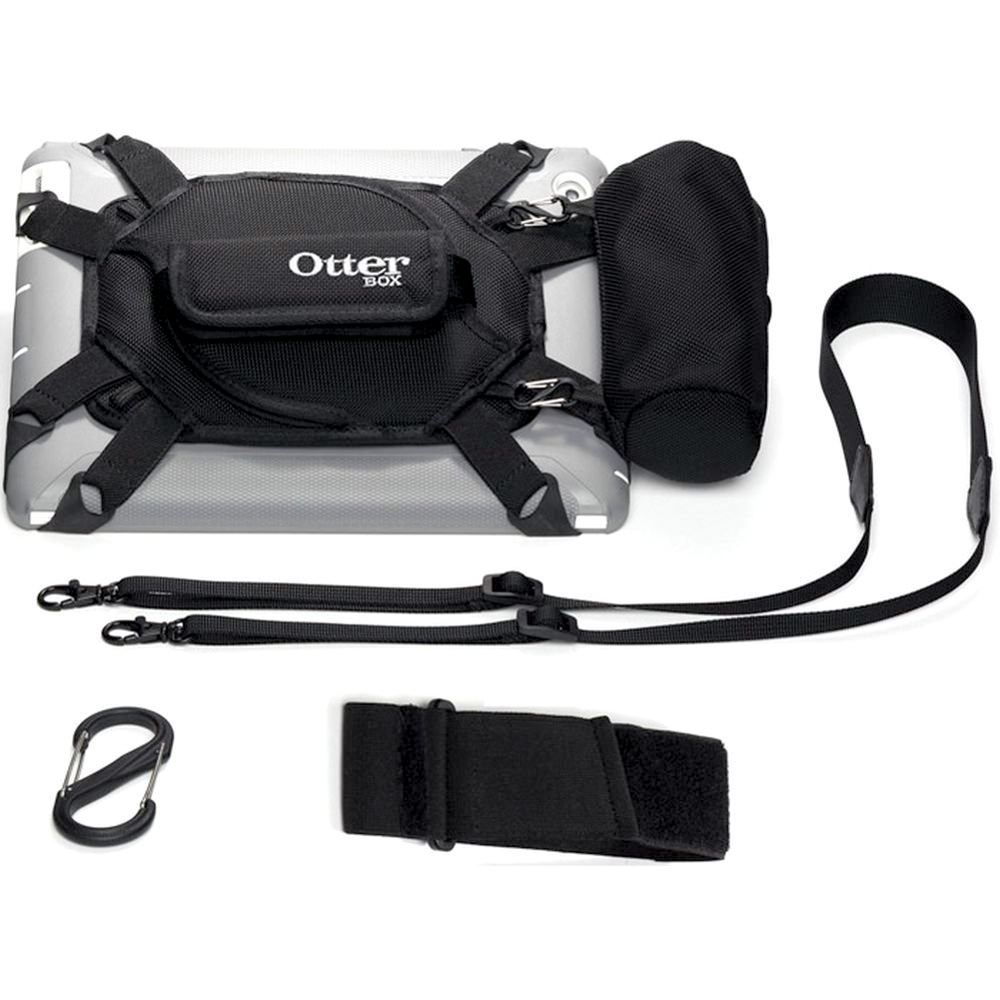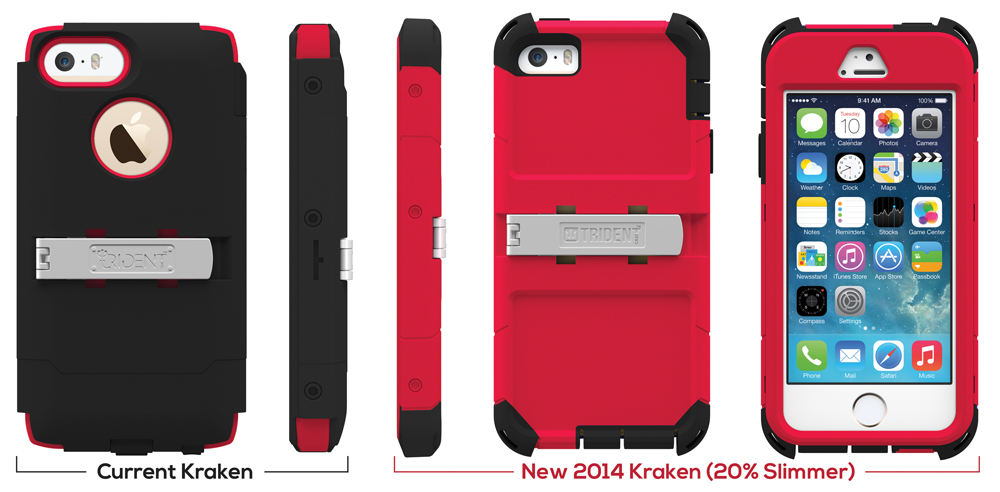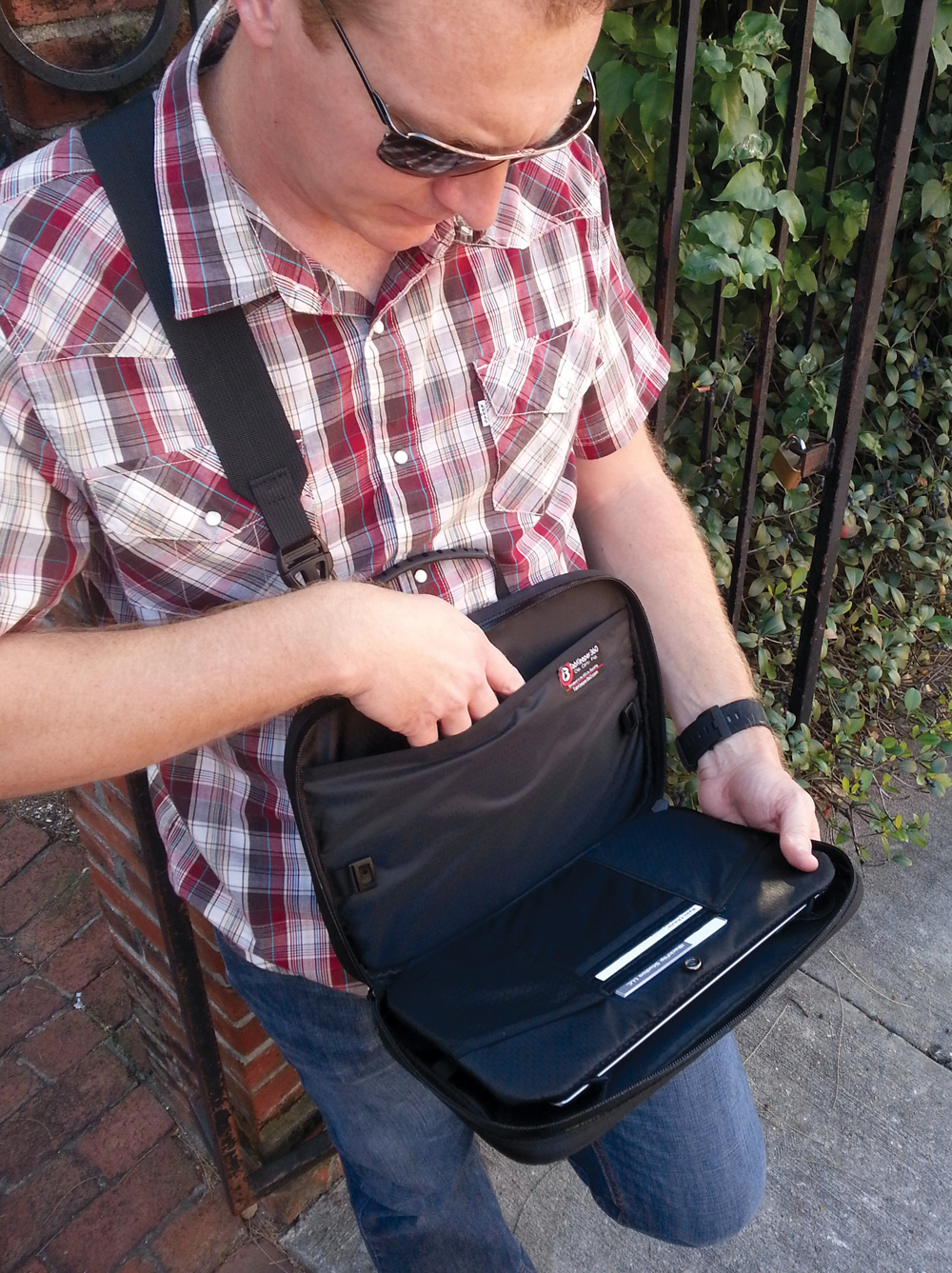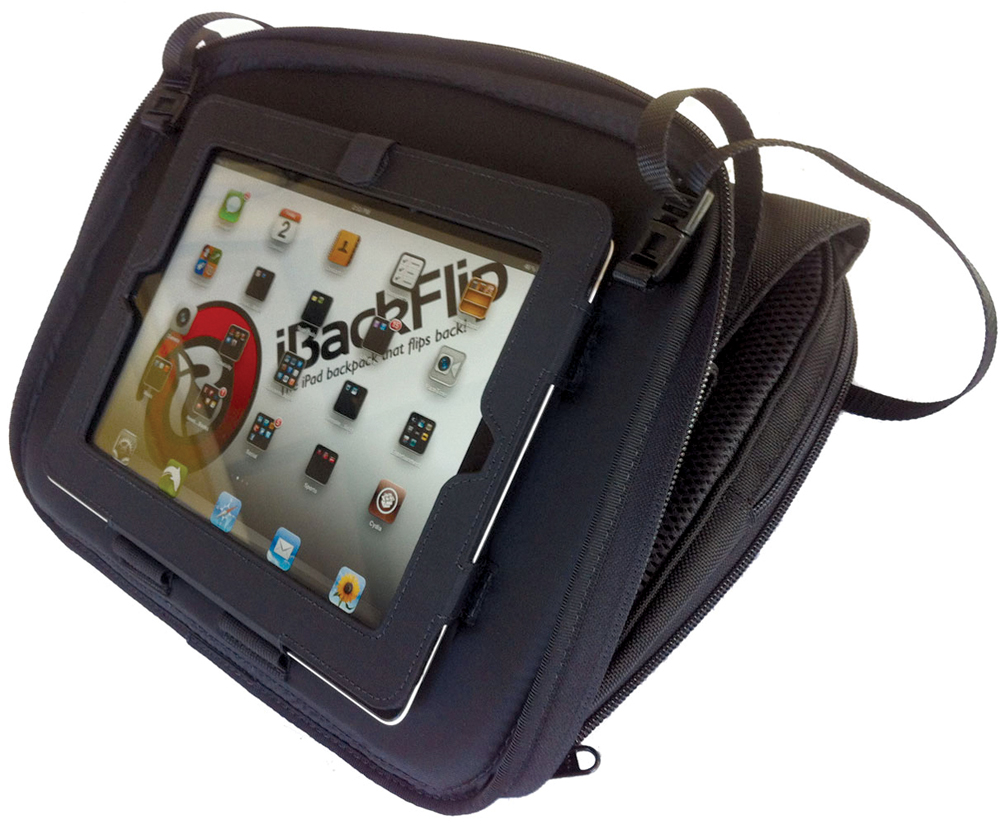When it comes to rugged mobile devices for the AEC market, the story lately has had less to do with the hardware itself and more with the deluge of hardened and weather-resistant cases, bags, and accessories to hit the market.
Sure, companies like Motion Computing, Panasonic, Trimble, and even Caterpillar (read our review of Cat's new rugged phone) continue to manufacture ruggedness-built-in tablets and smartphones. But many AEC firms are choosing to go with less costly consumer-grade mobile devices (iPad, iPhone, Galaxy, etc.) hardened with third-party accessories.
“From my perspective, rugged means heavy and slow,” says Peter Rumpf, Integrated Construction Manager with Mortenson Construction, and a BD+C “40 Under 40” honoree (class of 2012). “Our strategy is to treat the mobile device as a consumable and let the end user protect their device as they see fit.”
To find out which cases and accessories are popular among AEC professionals, we reached out to several BD+C readers with expertise in computer hardware. Here’s what they recommend (with some editors’ favorites mixed in):
1. OtterBox Defender Series iPad case
A mainstay in the rugged mobile device market, the Defender Series iPad case uses a multi-layer approach to protect tablets from bumps, shocks, drops, and dust (but not water) intrusion. An inner, two-piece polycarbonate shell has a foam interior for shock absorption, and a silicone outer layer absorbs impact from bumps and shocks. The textured exterior offers enhanced grip, and a built-in screen protector prevents scratches, smudges, and fingerprints. The integrated shield stand acts as a protective cover and doubles as a kickstand for typing or viewing. $89.95
Why BD+C reader Jarrod Krug recommends it: “Several customers have told us that they run Autodesk BIM 360 Field on iPads in these OtterBox cases—collectively on hundreds of devices at dozens of job sites—and they have performed in the worst of environments, with little or no issues.” —Jarrod Krug, BIM 360 Industry Marketing Manager, Autodesk
OtterBox | www.otterbox.com
2. Pelican ProGear Vault Series for the iPad Air and iPad mini
Designed for the military, law enforcement, and fire services industries, the Pelican ProGear Vault Series for the iPad Air and iPad mini is engineered with an elastomeric copolymer interior that absorbs impact forces, even drops from up to four feet. The case features an ingress protection rating of 54 for safeguarding against extreme elements, such as wind-driven rain, dust, dirt, snow, and sand. Optical-grade Dragontrail glass on the rear camera offers maximum clarity without sacrificing protection. $99.95 ($79.95 for iPad mini version)
Why we recommend it: The Pelican provides the ruggedness required for almost any job site with some nice performance features like a nifty hinged cover that doubles as a stand and a water-resistant membrane that protects the microphone and speakers without sacrificing voice quality.
Pelican Products | www.pelicanprogear.com
3. OtterBox Utility Series Latch II carrying case
The Utility Series Latch II carrying case comes with a versatile set of straps for multiple carrying, tethering, and display options—including palm grip, over-the-shoulder sling, and desktop stand. Designed for Defender Series tablet cases, the Latch II works with most 10-inch tablets. An optional accessory bag comes with a leg strap, S-biner, and neck strap, and doubles as a tablet stand. $39.95 ($49.95 with accessory bag)
Why BD+C reader Megan Looby recommends it: “This product is great because it has a long strap that allows you to wear your tablet across your body while in the field, leaving your hands free. On a recent job, almost all the subs used them to protect their iPads, which were used extensively for accessing drawings and specs in the field.” — Megan Looby, Project Manager, CBRE Healthcare
OtterBox | www.otterbox.com
4. Trident Kraken A.M.S Series case for the iPhone 5
Mention the term “rugged” and often what comes to mind is “bulky,” “heavy,” or “sluggish.” Sure, that smartphone can take a beating, but good luck stuffing it in your pocket. The re-engineered Kraken A.M.S Series case for the iPhone 5 and 5s is designed to provide the best of both worlds: impact and weather protection in a slim, ergonomic package. The case is 20% thinner than its predecessor, yet still meets the MIL-STD-810F standard for performance and durability in harsh environments. $49.95
Why we recommend it: It offers the protection of a heavy-duty case in a wrap not much thicker than light-duty cases. It comes equipped with a handy media stand that can be switched out with accessories geared for fieldwork, like a belt clip, windshield mount, and universal mount.
Trident Case | www.tridentcase.com
5. iBackFlip Somersault case
The iBackFlip Somersault has become popular among AEC professionals for its dual functionality—the backpack doubles as a hands-free mobile workstation. Flip the carrying case from back to front, unzip the pouch, and you’re ready to work on your tablet device. Adjustable straps keep the tablet at an ideal angle for the user. The straps can be disengaged and the case flipped 180 degrees for use on a desktop or other flat surface. $89.95
Why we recommend it: While not rugged, the Somersault gets our vote for its blend of convenience, functionality, and portability. The durable, water-resistant bag provides quick, on-the-go access to almost any tablet device (even small laptops like the 13-inch MacBook Air) and features pockets, utility hooks, stylus holders, and other storage and performance goodies.
BackFlip Studios | http://ibackflip.com
Related Stories
| Aug 11, 2010
Design firms slash IT spending in 2009
Over half of architecture, engineering, and environmental consulting firms (55%) are budgeting less for information technology in 2009 than they did in 2008, according to a new report from ZweigWhite. The 2009 Information Technology Survey reports that firms' 2009 IT budgets are a median of 3.3% of net service revenue, down from 3.6% in 2008. Firms planning to decrease spending are expected to do so by a median of 20%.
| Aug 11, 2010
A glimmer of hope amid grim news as construction employment falls in most states, metro areas
The construction employment picture brightened slightly with 18 states adding construction jobs from April to May according to a new analysis of data released today by the Bureau of Labor Statistics (BLS). However, construction employment overall continued to decline, noted Ken Simonson, the chief economist for the Associated General Contractors of America.
| Aug 11, 2010
Thom Mayne unveils 'floating cube' design for the Perot Museum of Nature and Science in Dallas
Calling it a “living educational tool featuring architecture inspired by nature and science,” Pritzker Prize Laureate Thom Mayne and leaders from the Museum of Nature & Science unveiled the schematic designs and building model for the Perot Museum of Nature & Science at Victory Park. Groundbreaking on the approximately $185 million project will be held later this fall, and the Museum is expected to open by early 2013.
| Aug 11, 2010
SOM's William F. Baker awarded Fritz Leonhardt Prize for achievement in structural engineering
In recognition of his engineering accomplishments, which include many of the tallest skyscrapers of our time, William F. Baker received the coveted Fritz Leonhardt Prize in Stuttgart, Germany. He is the first American to receive the prize.
| Aug 11, 2010
American Concrete Institute forms technical committee on BIM for concrete structures
The American Concrete Institute (ACI) announces the formation of a new technical committee on Building Information Modeling (BIM) of Concrete Structures.
| Aug 11, 2010
10 tips for mitigating influenza in buildings
Adopting simple, common-sense measures and proper maintenance protocols can help mitigate the spread of influenza in buildings. In addition, there are system upgrades that can be performed to further mitigate risks. Trane Commercial Systems offers 10 tips to consider during the cold and flu season.
| Aug 11, 2010
Reed Construction Data files corporate espionage lawsuit against McGraw-Hill Construction Dodge
Reed Construction Data (RCD), a leading construction information provider and a wholly-owned subsidiary of Reed Elsevier (NYSE:RUK, NYSE:ENL), today filed suit in federal court against McGraw-Hill Construction Dodge, a unit of The McGraw-Hill Companies, Inc. (NYSE:MHP). The suit charges that Dodge has unlawfully accessed confidential and trade secret information from RCD since 2002 by using a series of fake companies to pose as RCD customers.
| Aug 11, 2010
Jacobs, HOK top BD+C's ranking of the 75 largest state/local government design firms
A ranking of the Top 75 State/Local Government Design Firms based on Building Design+Construction's 2009 Giants 300 survey. For more Giants 300 rankings, visit http://www.BDCnetwork.com/Giants
| Aug 11, 2010
Brad Pitt’s foundation unveils 14 duplex designs for New Orleans’ Lower 9th Ward
Gehry Partners, William McDonough + Partners, and BNIM are among 14 architecture firms commissioned by Brad Pitt's Make It Right foundation to develop duplex housing concepts specifically for rebuilding the Lower 9th Ward in New Orleans. All 14 concepts were released yesterday.
| Aug 11, 2010
NAVFAC releases guidelines for sustainable reconstruction of Navy facilities
The guidelines provide specific guidance for installation commanders, assessment teams, estimators, programmers and building designers for identifying the sustainable opportunities, synergies, strategies, features and benefits for improving installations following a disaster instead of simply repairing or replacing them as they were prior to the disaster.



